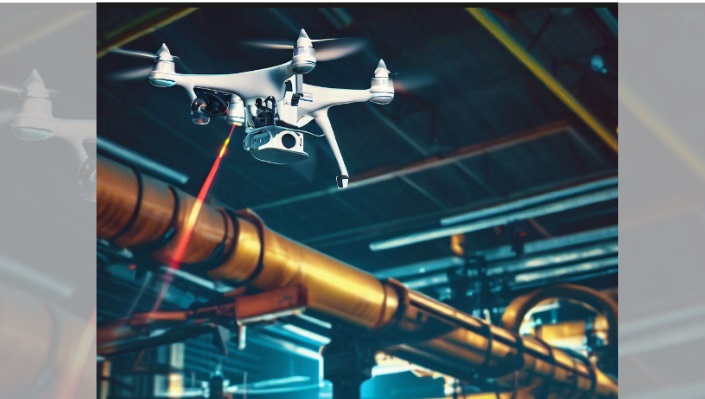
Take Flight Safely: Explore Exclusive Drones UAV Insurance Plans!
Drones, or Unmanned Aerial Vehicles (UAVs), offer incredible benefits for businesses across various industries. However, with their increased use comes the need for specialized insurance. In my experience, understanding commercial drone insurance is essential for mitigating risks and ensuring a secure flight path for your venture.
Why activities of my drone operation matter?
This is the most fundamental question for insurer, as the nature of your operations significantly shapes the risk exposure. Here's how to break it down:
- Complexity of Flight: Simple aerial photography carries less inherent risk than inspecting infrastructure up close or drone deliveries.
- Environment: Flying over crowds poses higher risk concerns than operating over empty fields.
- Payload: Expensive sensors or cameras represent additional financial risk in case of loss or damage.
- Privacy: Capturing sensitive footage (people, proprietary data) might necessitate specialized privacy liability extensions.
Savings Tips:
- Start small: If possible, begin with lower-risk activities to establish a good safety record and potentially lower premiums over time.
- Safety first: Invest in pilot training, meticulous maintenance, and pre-flight checklists. Insurers reward operators who mitigate risk.
What are my legal drone liability coverage requirements?
In many jurisdictions, including Canada, Transport Canada mandates minimum levels of third-party insurance for commercial drone pilots. Non-compliance can lead to fines and even jeopardize your entire operation. Consider the following:
- Liability Minimums: Transport Canada (or your relevant jurisdiction) mandates minimum third party coverage levels for commercial drone pilots.
- Region-Specific Rules: Some provinces or municipalities may have additional requirements or limitations on drone use.
Savings Tips: Don't assume:
Knowing the exact regulations not only prevents penalties but allows you to tailor your policy without overpaying for unnecessary coverage.
Do I need both liability and hull insurance for my drone(s) and related equipment?
In my opinion, protecting your investment from accidental damage or theft offers financial peace of mind. Here's the explanation of the coverage and some savings tips:
- Liability protects you financially if your drone causes damage to property or injures someone. This is usually non-negotiable.
- Hull covers your own equipment (drone, payloads) against loss, theft, or accidental damage.
Savings Tips:
- Assess your budget: Cheaper drones might not warrant the extra cost of hull insurance, especially if you have a backup on hand.
- Good Practices Matter: Insurers may offer discounts if you can demonstrate safe operating procedures, reducing their risk perception.
Are there pay-as-you-fly drone insurance options for my occasional usage?
If flexibility is important, these on-demand plans could be a great fit but consider the following guideline before making a decision
- Frequency: If you fly every week, a traditional annual policy likely offers better value. Occasional use favors on-demand flexibility.
- Predictability: If some of your work is seasonal, pay-as-you-fly lets you avoid paying for coverage when your drones are grounded.
Savings Tips:
- Calculate honestly: Some pay-as-you-fly plans might seem cheaper per flight, but can add up quickly if you use them often.
- Hybrid options: Some insurers offer a base policy with the ability to add on-demand coverage for peak times.
Why would location where my drone operates matter?
Some insurers specialize in domestic operations, others in international coverage – matching this to your needs is crucial. Your operating areas directly impact available policies and potentially even the cost of your insurance. Consider:
- Domestic vs. International: Many policies cover only domestic flights. International operations often call for specialized coverage.
- Urban vs. Remote: Denser areas present higher collision risk and might require increased liability coverage.
- Restricted Zones: Flying near airports, critical infrastructure, or during events might have unique insurance requirements or be prohibited altogether.
Savings Tips:
- Know your boundaries: Don't overpay for international coverage if you won't use it.
- Explore Location-Specific Policies: Some insurers specialize in areas like urban or coastal operations, potentially offering tailored rates.
Does the insurer have drone industry expertise?
In my experience, working with specialists ensures they understand the unique risks and terminology of drone operations. A specialist insurer offers several advantages:
- Understanding of Terminology: They won't waste time deciphering technical terms, making the policy process smoother.
- Risk Assessment Expertise: They are better equipped to accurately gauge your risk profile and offer appropriate coverage.
- Industry Resources: Many provide safety guides, pre-flight checklists, or additional support to help you minimize claims.
Savings Tips:
- Reputation Matters: An insurer with a track record in the drone industry is more likely to understand your needs, potentially saving you from over or under-insuring.
- Long-Term Value: Though not always the cheapest, the support and resources provided by specialists can help you avoid costly incidents in the future.
What level of coverage (limits), deductibles, and exclusions best fit my budget and risk tolerance?
This will impact your out-of-pocket costs if an accident occurs. Consider the following
- Coverage Limits: Don't just go for the minimum—assess the potential financial impact if an accident exceeds your liability coverage.
- Deductibles: A higher deductible can lower premiums, but you'll pay more out-of-pocket in case of a claim.
- Exclusions: Read the fine print! Typical exclusions might include intentional damage, data breaches, or operating under the influence.
Savings Tips:
- Realistic Risk Assessment: Balancing cost vs. coverage is key. Don't overpay, but don't leave yourself financially vulnerable.
- Negotiate: Some insurers may be open to adjusting limits or deductibles to fit your specific situation.
How can I tailor and scale my insurance as my drone operations grow and evolve?
Your insurance needs will likely change as your business expands. Ensure your policy can adapt by asking:
- Adding Drones: Can you easily add more drones to your coverage as your fleet expands?
- Upscaling Coverage: Are there clear paths to increase liability limits if you take on more complex projects?
- New Activities: Does the insurer cover a wide range of drone operations, or are you limited?
Savings Tips:
- Plan Ahead: Inquiring about scalability helps you avoid needing to switch insurers later, which can be a hassle.Bundled Discounts: Some insurers offer better rates when you expand your coverage with them. proactive insurer with safety resources demonstrates an investment in your business's success.
Frequently Asked Question about Insurance
What's the difference between hobby drone insurance and commercial drone insurance?
Hobby insurance often provides less coverage and is for recreational use. Commercial policies are tailored to business operations with higher limits and specialized coverage options. Consider the following comparison:
- Hobby Drone Insurance: Designed for recreational flying. Coverage generally focuses on risks (if your drone causes damage or injuries). Hull insurance (covering damage to your drone) may be optional.
- Commercial Drone Insurance: Mandatory if you fly your drone for business purposes (photography, inspections, etc.). It offers more comprehensive coverage including liability, hull damage, and potentially other business-related risks like invasion of privacy claims or equipment loss.
How much does drone insurance typically cost?
Premiums vary greatly based on a few factors and here are the few that insurer depend on:
- Drone value
- Pilot experience
- Type of operations (hobby vs. commercial)
- Coverage limits and deductibles chosen
And the approximate premium ranges:
- Hobbyist policies can start as low as a few dollars per month.
- Commercial drone insurance often falls in the range of hundreds or even thousands of dollars annually.
Can I get drone liability insurance by itself?
Do I need drone insurance if I only fly occasionally?
Pay-as-you-fly insurance plans is a good place to start, and it ensure coverage only when you need it.
Do I need drone insurance outside of my country of residence?
Check local laws regarding insurance
Verify if your current policy extends coverage abroad and the areas you'll operate in. You may need supplemental insurance.

 EN
EN  FR
FR